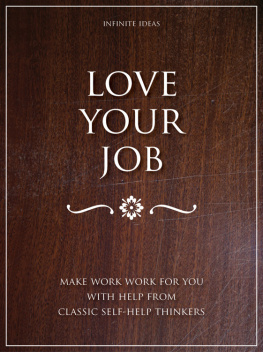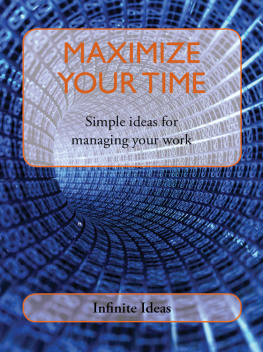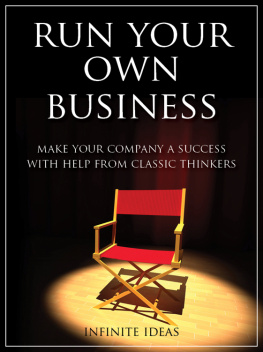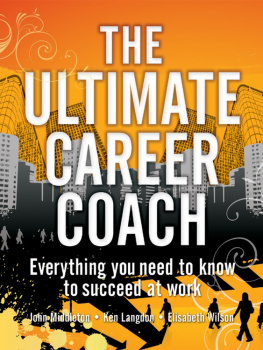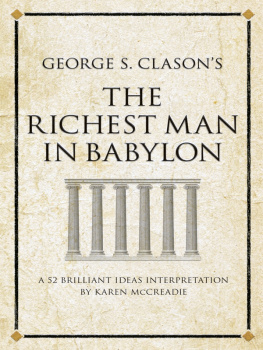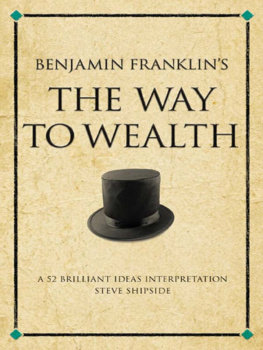Introduction

I hate my job! who hasnt screamed this, stomping in through the front door and slamming it behind them? At some point we all have bad days. If the bad days increase in number we start to look for solutions to the dilemma search for a new job (the obvious one), consider setting up on our own or take flights of fancy about murdering our boss with a letter opener/running away to a desert island and living off fish and mangoes.
But getting a job or starting your own business is difficult and takes time and murdering people, however unreasonable their demands, is frowned upon the world over. Perhaps there is a simpler solution; what if you could learn to love the job you have? We may think that disillusion with our working lives is a modern phenomenon but looking back on the words of advice givers over the past few cernturies we can see that this is not the case. As far back as 1758 Benjamin Franklin was dispensing wisdom on careers. But what do he and other classic thinkers have to tell you about the modern work world with its 24-hour communications, office politics and work cubicles?
Well, astonishingly, much of what these writers say is equally applicable now, so we have taken their thoughts and updated them for the twenty-first century. Heres a little about the books we have turned to in our quest for career happiness.
Benjamin Franklins The Way to Wealth is a very human book about very human strengths and weaknesses. Turning its pages is a bit like going into the attic of your parents house and sifting through all the old family belongings. There are so many aphorisms and bite-sized bits of homely wisdom that its as if every drop of sound and solemn common sense you ever heard had been distilled into the pages of one slim volume. As a true classic its also clear, on reflection, that this advice is as valid now as it was back in 1758 when the book was published working smarter, not harder, is still the way to career bliss. Franklin was writing in an era when manual labour and the delivery of products rather than services were the primary activities. As such he doesnt dwell much on knowledge management, outsourcing or even delegation. What is surprising, then, is how much of his homespun wisdom can be applied to those fields.
Samuel Smiles was keenly aware of the difference between theorising about life and experiencing it first hand and was at pains to insist that his 1859 classic, Self-help , was a collection of illustrations from life rather than a distillation, a short cut or a magic bullet. Self-help is a collection of examples of those who achieved greatness by perseverance, application, and bucketloads of back-breaking hard work. Smiles frowned on the idea of being helped by others, believing that a path made easier by others would not reap the same rewards, but he did believe greatness was in everyones reach regardless of how humble their origins. Although austere, unsmiling Victorianism is pretty hard stuff to digest these days a great deal of the content of Self-help has not dated because it refers to the timeless the essential qualities of great people.
In The Conquest of Happiness , written in 1930, Bertrand Russell questions ideas, beliefs and ways of thinking that were (and mostly still are) the conventional wisdom. Russell has the logicians genius of coming up with an answer that appears completely straightforward and obvious until you try to explain it to someone the next day, and have to go back to look it up again. Russells talent is to make the apparently insoluble problems of how can I be happy? seem manageable by any of us. He writes, he admits, for the majority of people who have health, food and shelter to satisfy their basic needs and who are sometimes happy, but not often enough: a situation many of us know very well. There are many self-help books available that try to make us happier by encouraging us to obsess about ourselves or manipulate others, or both. Russell does neither. From the man who thought for a living for most of his life and he was ninety-seven when he died this isnt a book about thinking too much, except where the thinking is useful. So if nothing else its likely to save you a lot of time in your quest for joy at work.
Weve also included ideas from Robert Colliers 1926 new thought classic The Secret of the Ages , The Richest Man in Babylon , a personal finance fable written by George S. Clason in 1926, Napoleon Hills 1937 personal development book, Think and Grow Rich and Ralph Waldo Emersons 1841 transcendentalist essay Self-reliance .
We hope that all this good advice will revive your enthusiasm for your job, or at least make you excited about work again meaning that when you do look for a new job youll do it with a glad heart and not just because you cant stand working in your current job for one more day.
Do be do be do

Benjamin Franklin is no friend of procrastinators. One of the recurrent themes of The Way to Wealth is the need to get on the case right now and not put things off. Work while it is called today, for you know not how much you may be hindered tomorrow, he intones.
This is all very well in an ideal world. Sometimes, however, you have no choice but to leave some items of work until tomorrow, perhaps because those kids arent going to pick themselves up from school, or perhaps because the alternative is to run screaming from the building and security have already warned you about doing that. In these circumstances and in many others the simple to-do list can become your friend.
Now, some people see to-do lists as just a means of putting things off. After all, its a lot easier to write down items on a to-do list than it is to actually do the things you have written on it. Others baulk at to-do lists simply because once you start detailing everything youre supposed to be working on, there is a strong impulse to fake your own death or run away to sea, or both. However, for the true to-do blackbelts there is a mastery and mythology about the to-do list that repays the effort of learning.
Typically people compile their to-do lists in the morning, often as a way of putting off actually starting work. If it helps you to organise your day then thats not in itself a bad thing, but it is often far more productive to write your list at the end of the day when the pressing tasks and problems are far more fresh in your mind. On top of that, youre then more likely to de-stress about the tasks that you have already committed to your to-do list, so the act of organising your thoughts and writing your list calms you down. It helps you to focus on the next day, while also helping to ensure the good nights sleep you will need to deal with that day to come. So finish your day with a today/tomorrow to-do list.
Dont just jumble everything up in the list like a shopping list; prioritise the order of tasks by grading them depending on exactly how critical it is that they be done on that particular day. You can use an A, B, C or a traffic-light colour-coding system, as you wish, but make sure that the end result is visually clear those truly important items should leap right off the list at you when you scan it, even in passing. Finally, be careful about that grading when carrying items over to the next to-do list. Dont just copy it without thinking, as items which were unimportant on one day may well end up being time critical in another day or so.
Defining idea
I am definitely going to take a course on time management just as soon as I can work it into my schedule.
Next page
